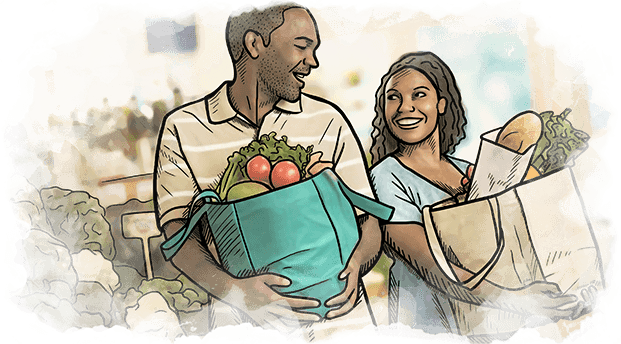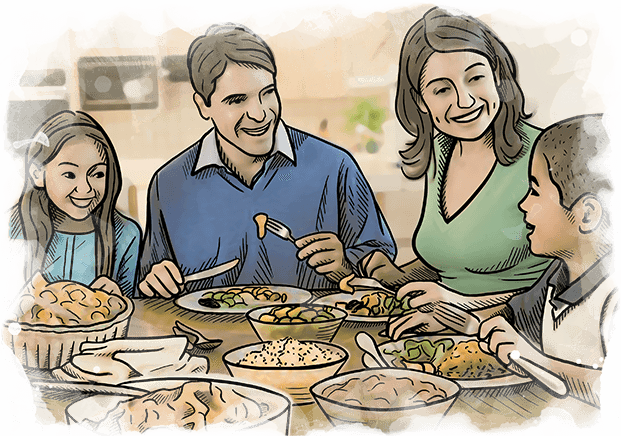On unit 1, you learned about the evolution and main achievements of the Brazilian National School Feeding Programme (PNAE) along its history. On this unit we present the Programme in a Brazilian social-political context so you can better understand the PNAE’s guidelines, particularly the ones related to foodstuffs acquisition from smallholder farming. For that, we especially address themes of Food and Nutrition Security and the Right to Food.
Food and Nutrition Security and the Right to Food: definitions, origins and evolutions
To facilitate your comprehension regarding these topics, let’s start with a brief definition of each of them:
- Food and Nutrition Security (SAN): universal right to a regular and permanent access to quality food, in a sufficient amount, without compromising the access to other essential needs, based on food practices that promote health, respect cultural diversity and are environmentally, culturally, economically and socially sustainable.

Right to Food (DHAA):
right to uninterrupted access to proper feeding and other means to obtain food, without compromising resources to obtain other fundamental rights, such as health and education, as stated in the Brazilian Federal Constitution.

It is important to highlight that these rights are already officialised in Brazil. The SAN is in Article 3 of the Organic Law of Nutrition Security (LOSAN). The DHAA, which is also in the LOSAN, was included in Article 6 of the Federal Constitution in 2010, by means of the amendment 64.

Organic Law of Nutrition Security (LOSAN)
http://www.planalto.gov.br/ccivil_03/_ato2004-2006/2006/lei/l11346.htm
FOOD FOR THOUGHT
Besides the benefits previously discussed, in your opinion, what else can SAN and DHAA provide to the population in general and also to natural resources?

